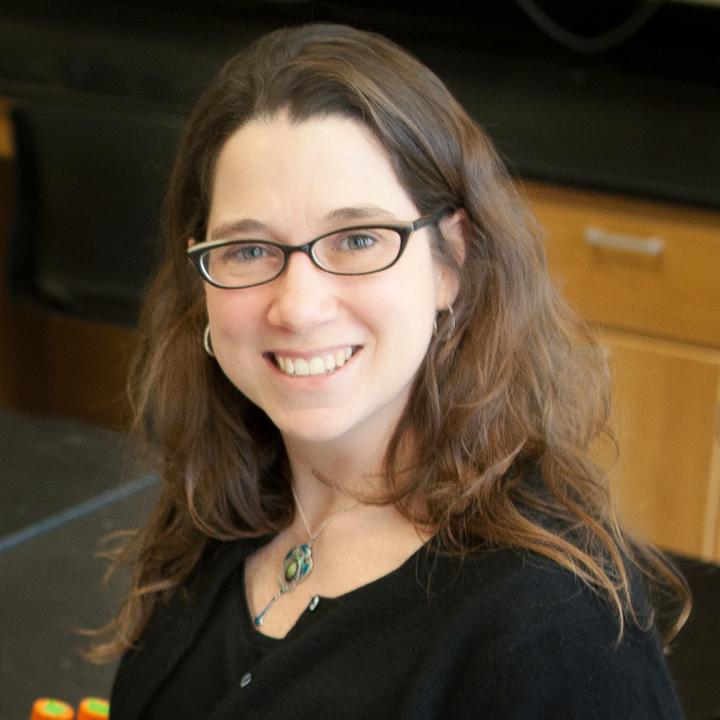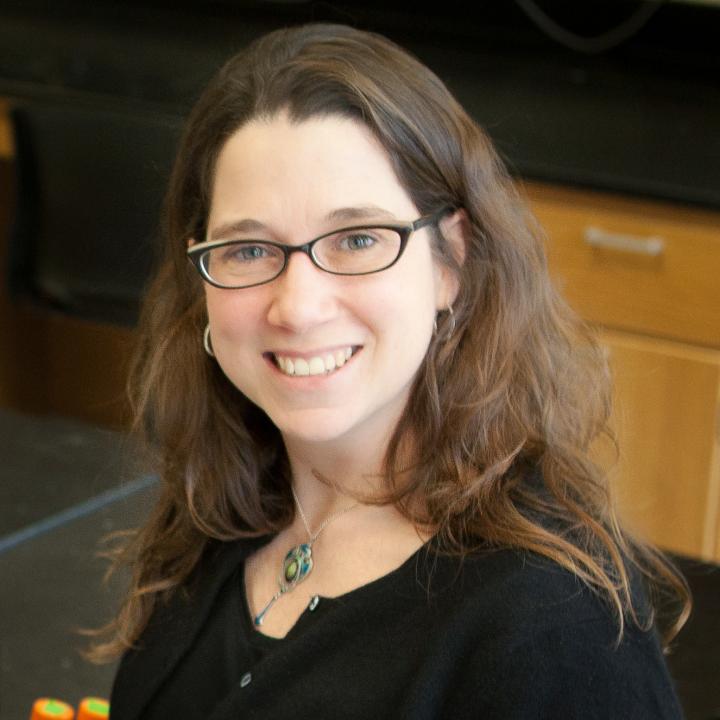
Credit: Photo by Kathryn Faith
The Paul G. Allen Frontiers Group announced five new Allen Distinguished Investigator (ADI) awards to researchers conducting pioneering research in epigenetics, aging, and evolution, including Rachel Whitaker, Associate Professor of Microbiology and leader of the Infection Genomics for One Health research theme at the Carl R. Woese Institute for Genomic Biology at the University of Illinois. Each ADI is funded at $1.5 million over three years, totaling $7.5 million in funding.
"Viruses and other mobile genetics elements do not follow the rules of classical Darwinian evolution. Individual organisms share mobile DNA, forming a dynamic network of genetic connections. Measuring and modeling the dynamics of mobile DNA will revolutionize our understanding of the evolutionary process itself," said Whitaker. "This Allen Distinguished Investigator award will enable interdisciplinary collaboration among colleagues at University of Illinois, University of Chicago, and Geisel School of Medicine at Dartmouth. Stepping outside our traditional silos, we will integrate our expertise toward the common objective of developing this promising new evolutionary paradigm."
Whitaker's award in the area of microbial evolution focuses on recent research which has unearthed regions of the genome that are capable of moving rapidly between cells, creating a sea of dramatic and unpredictable genetic changes. These mobile genetic elements (MGEs) are particularly exploited by infectious bacteria, which evade antibiotics through rapid evolution. While the scientific response to infectious disease has focused on identifying new ways to target and kill bacteria, antimicrobial resistance, virulence, and many other properties of pathogens are evolutionary problems driven by mobile elements. An evidence-based predictive understanding of the evolutionary forces that drive the emergence and spread of these traits is needed in order to stop them. Whitaker's project will create models of MGEs and their evolutionary roles within a human system, and compare and refine those models against longitudinal data in order to capture and better understand this crucial evolutionary process.
"Each of these awards is given to researchers with the bold ideas and new perspectives we need to make the next big leap in bioscience," said Tom Skalak, Ph.D., Executive Director of The Paul G. Allen Frontiers Group. "Epigenetics, aging, and evolution are all fields with great impact on human health and wellbeing, but that currently face significant gaps in knowledge. With these awards, we hope to make strides toward the kind of breakthrough insights that can change the direction of an entire area of research."
While evolution is typically modeled as a series of small mutations, new knowledge suggests that large, highly mobile sections of the genome can flow rapidly among organisms: a strategy employed by infectious bacteria to evade antibiotics. Preventing the next pandemic will require understanding and modeling these mobile genetic elements in bacteria and humans.
The Allen Distinguished Investigator program supports early-stage research with the potential to reinvent entire fields. Allen Distinguished Investigators are passionate thought leaders, explorers and innovators who seek world-changing breakthroughs. The Frontiers Group provides these scientists with support to produce new directions in their respective fields.
###
The other ADI program award recipients were Dr. Fei Chen, Broad Institute, and Dr. Jason Buenrostro, Broad Institute and Harvard University; Dr. Jan Ellenberg, European Molecular Biology Laboratory, and Dr. Ralf Jungmann, Max Planck Institute of Biochemistry & LMU Munich; Dr. Charles A. Gersbach, Duke University; and Dr. Steve Horvath, University of California, Los Angeles.
About The Paul G. Allen Frontiers Group
The Paul G. Allen Frontiers Group is dedicated to exploring the landscape of science to identify and fund pioneers with ideas that will advance knowledge and make the world better. Through continuous dialogue with scientists across the world, The Paul G. Allen Frontiers Group seeks opportunities to expand the boundaries of knowledge and solve important problems. Programs include the Allen Discovery Centers at partner institutions for leadership-driven, compass-guided research, and the Allen Distinguished Investigators for frontier explorations with exceptional creativity and potential impact. The Paul G. Allen Frontiers Group was founded in 2016 by philanthropist and visionary Paul G. Allen, and is a division of the Allen Institute, an independent 501(c)(3) medical research organization. For more information, visit allenfrontiersgroup.org.
Media Contact
Nicholas Vasi
[email protected]
@IGBIllinois
http://www.igb.uiuc.edu
Original Source
http://www.igb.illinois.edu/news/rachel-whitaker-receives-allen-distinguished-investigator-award
############
Story Source: Materials provided by Scienmag





